Moderate Communitarianism and its Ambivalence: A Philosophical Study
VerifiedAdded on 2023/04/25
|5
|1100
|162
Essay
AI Summary
This essay critically examines Kwame Gyekye's concept of Moderate Communitarianism (MC) within the context of African political philosophy, focusing on the tension between individual rights and communal values. It challenges Gyekye's attempt to strike a balance between communitarian demands and liberal rights, arguing that both radical and moderate forms ultimately prioritize communal will over individual autonomy. The essay contends that Gyekye's emphasis on communal ethos, even while acknowledging individual rights, leads to a subordination of the individual to the collective. By advocating for love over justice and portraying individuals as passive recipients of communal values, Gyekye's moderate communitarianism inadvertently aligns with unrestricted communitarianism, ultimately treating individuals as means to communal ends. The essay concludes that Gyekye's model, despite its intentions, fails to adequately distinguish itself from non-moderate forms, thus revealing a fundamental ambivalence in its approach to individual rights and community values. Desklib offers a variety of resources, including similar essays and solved assignments, to aid students in their studies.
1 out of 5
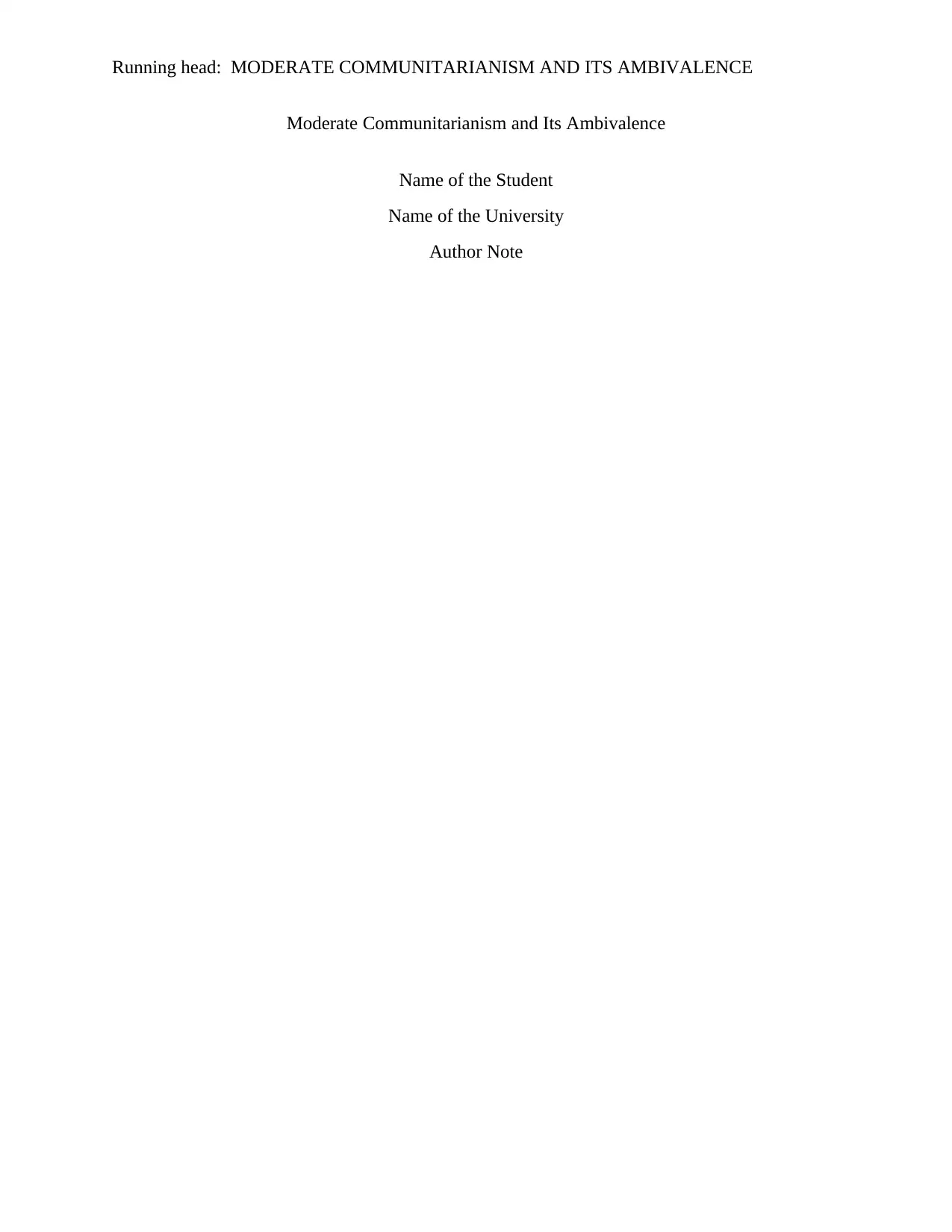
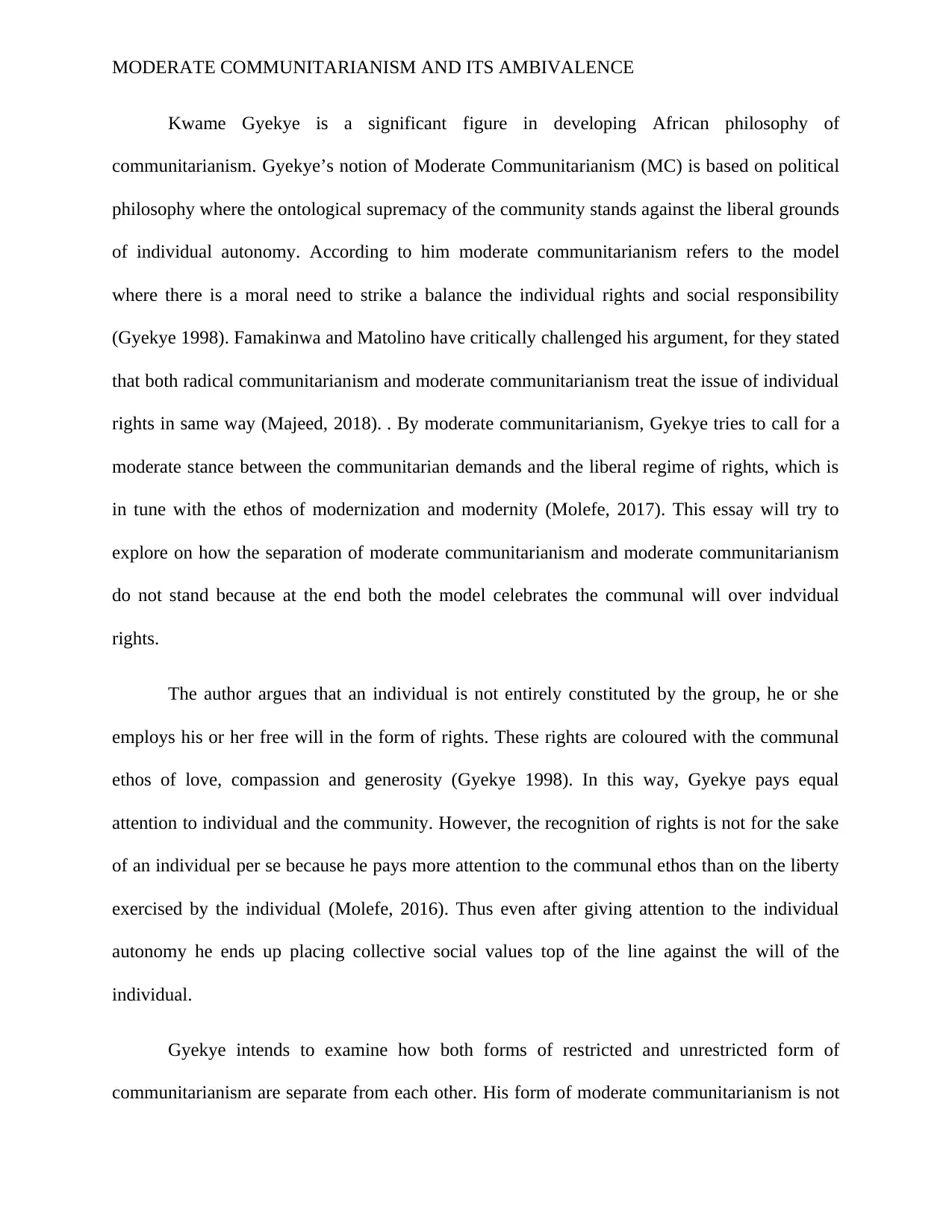
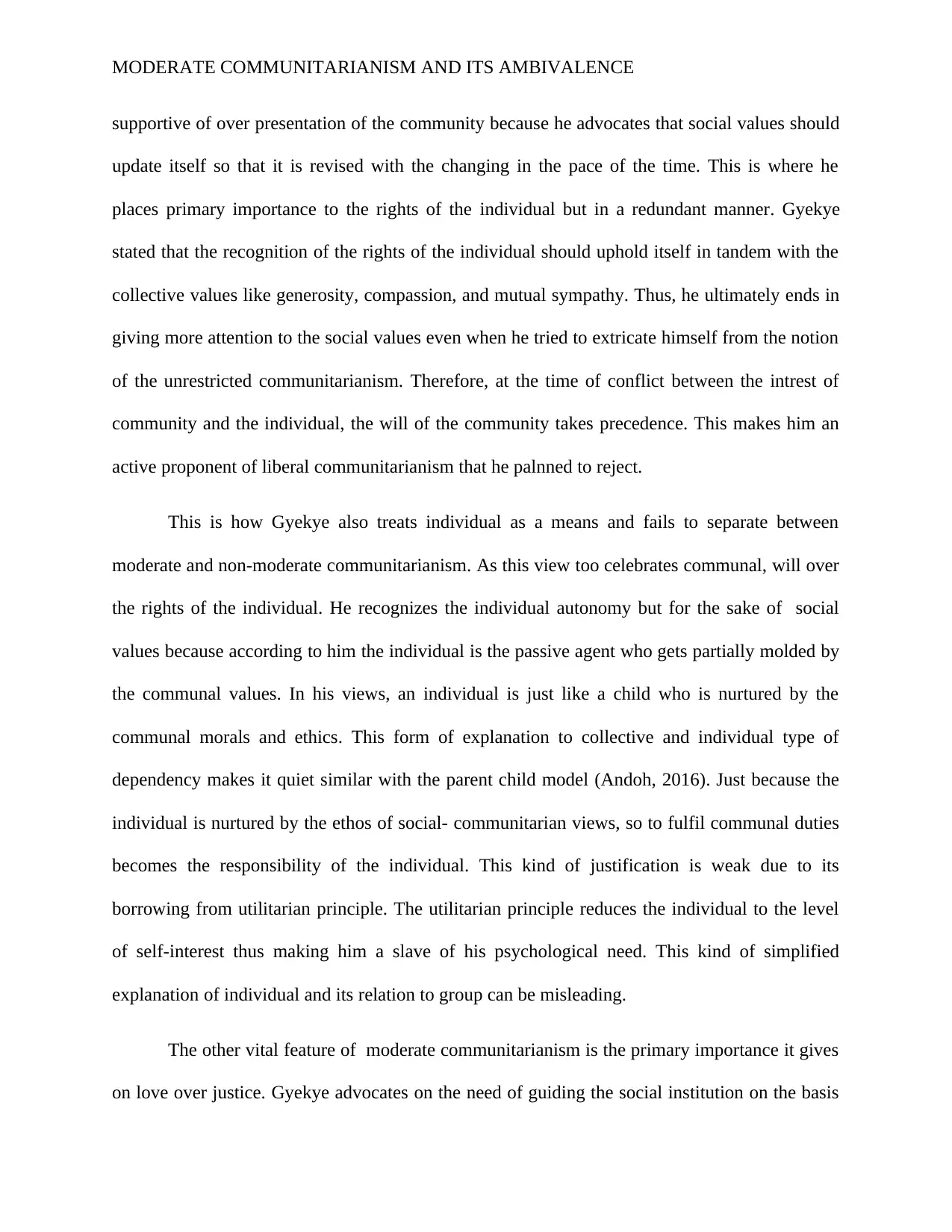

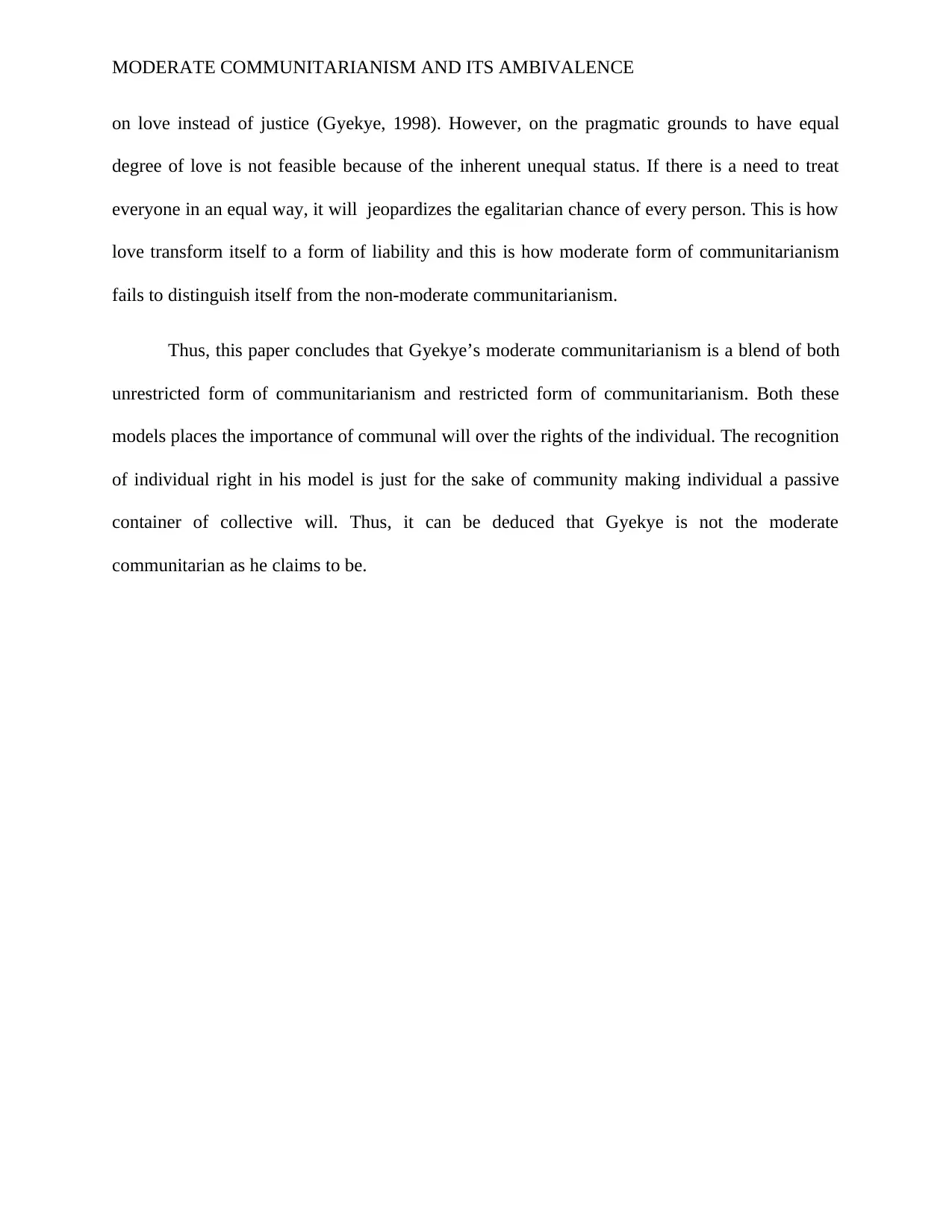
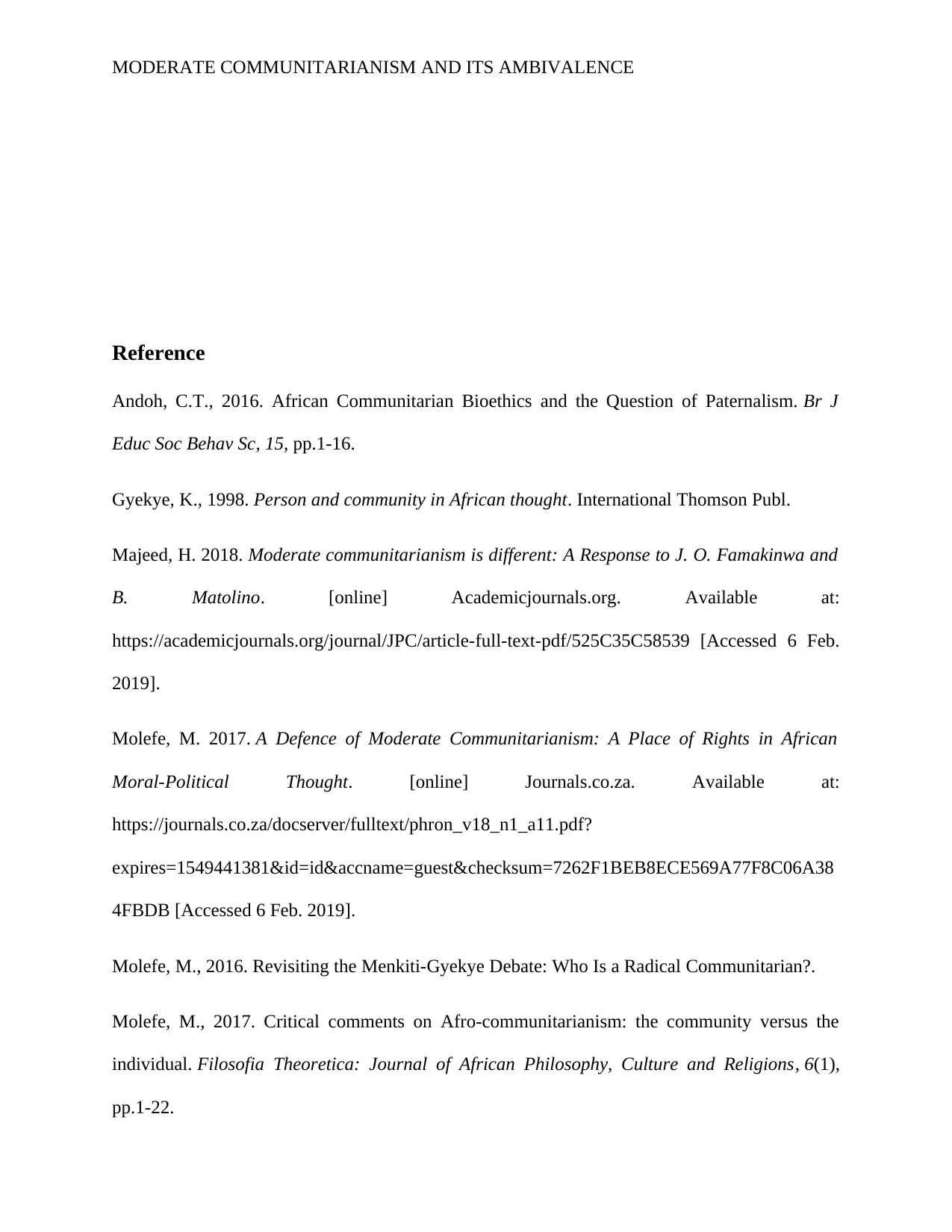
![[object Object]](/_next/static/media/star-bottom.7253800d.svg)